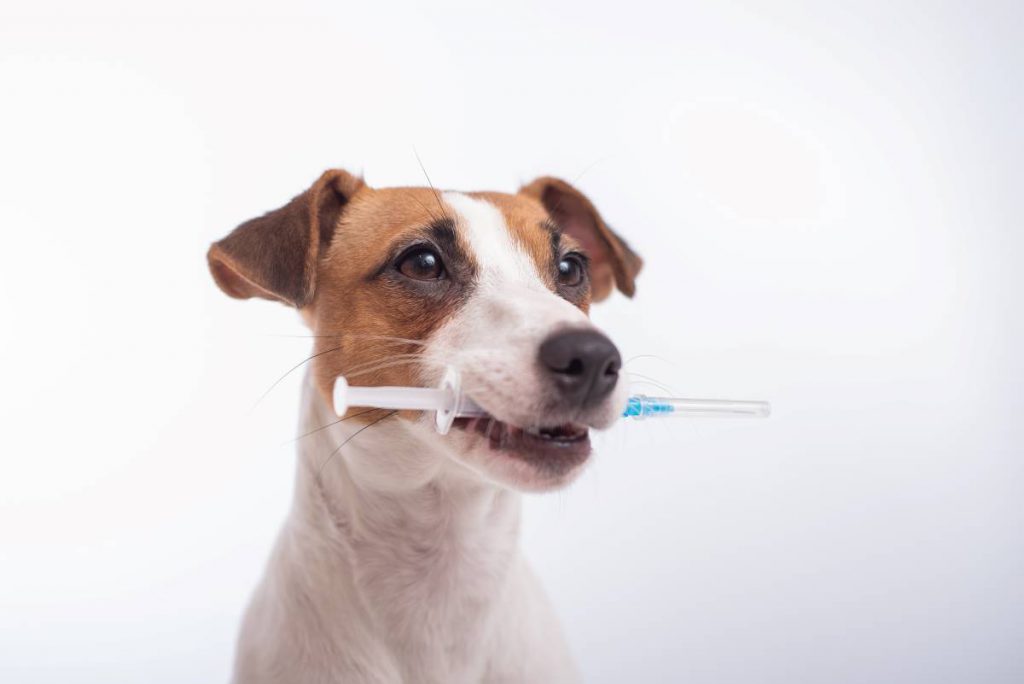The import and export of animals between Canada and other countries have various conditions which must be met. It is to prevent the spread of diseases and to ensure the animal is healthy and fit to travel. In this article, we’ll look at the collection of travel documents known as the Pet Passport in Canada.

Canadian Pet Passport – What Is It?
When using the term “pet passport,” people should not assume it is the same as a regular passport. It is not a document with a picture of the pet, date of birth, or stamps showing where the animal has traveled.
Instead, a pet passport is a term used to reference the animal’s health record and other papers a pet may require to travel to and out of Canada. It comprises articles such as deworming records, proof of rabies vaccination, routine vaccinations, import permits, and much more.
Traveling From A Rabies Free Country
Rabies is an infection caught from a scratch or the bite of animals. Though rare, it can have devastating consequences on humans. Rabies is found in a whole host of animals, but when it comes to pets, it is often associated with cats and dogs. Canada looks at these countries as being free from rabies:
- United Kingdom (consisting of Northern Ireland, Scotland, Wales, and England),
- Sweden,
- New Zealand,
- Japan,
- Ireland,
- Iceland,
- Finland,
- Fiji, and
- Australia.
If you are entering Canada from any of the above nations, a rabies-free certificate from these countries for your pet cat or dog is adequate. This document will show that there have not been any cases of rabies in the country for the previous 6 months. The certificate will also confirm the pet dog or cat has resided in the country for the past 6 months.
A licensed veterinarian can issue a rabies-free certificate. Additionally, the certificate must be endorsed and approved by the local government bodies responsible for the export and import of pets.
Rabies Vaccination Certificate
Alternatively, you could show a rabies vaccination certificate. The certificate must demonstrate the rabies vaccination is valid. Cats and dogs must obtain a rabies vaccination yearly or a booster every 3 years.
Health Certificates
A health certificate is not always required to come to Canada, though obtaining a health certificate is a good idea as it demonstrates the pet is in good health to travel. However, if a cat or dog is less than 8 months old and not traveling with the owner, a health certificate must be obtained.
Additionally, the acquired health certificate must be certified and issued within 48 hours of travel.
Traveling From A Country That Is Not Rabies Free
A rabies vaccination becomes compulsory if the pet cat or dog travels from a country not recognized as rabies-free. A certification must be obtained from a licensed veterinarian and needs to be endorsed by the governing authorities responsible for the import and export of pets.
A health certificate issued by a licensed veterinarian is not usually required but becomes so if the pet is less than 8 months old and is not traveling with the owner. The health certificate must also be certified and issued within 48 hours of travel. As a collective, these documents form the basis of a pet passport (some refer to it as a cat passport or dog passport).
Note: There is currently a ban on the importation of dogs from countries at high risk of rabies. However, this ban is only imposed on dogs imported for commercial purposes. Therefore, pet dogs can continue to enter Canada freely.
Banned Breeds Of Dogs
Though most dog breeds are welcome in Canada, certain types are prohibited from entry in some provinces. They are as follows:
- Ontario – Staffordshire Bull Terrier, American Pit Bull Terrier, Pit Bull Terrier, and The American Staffordshire Terrier and their crosses are currently barred from transiting or entering.
- Toronto City – As above, but Toronto allows the air transit of these dogs. Advance notice has to be given with the use of an agent to transit the dog.
- Winnipeg – American Staffordshire Terrier, Staffordshire Bull Terrier, American Pit Bull Terrier, and their mixes are barred from transiting or entering.
Given these breeds of dogs are banned, obtaining a pet passport for these types of dogs is not possible.
Other Pet Animals
Though cats and dogs are the most popular for travel and pet passports, other types of pets are also commonly imported and exported from Canada. Let’s look at their requirements for a pet passport.
Rabbits
Rabbits can enter Canada from the United States without any documentation. However, the criteria change for other countries. Exporting rabbits from other countries requires a health certificate, import permit, and quarantine as part of the pet passport.
Rodents
Most rodents do not require a health certificate or permit to enter Canada; therefore, there is no need for a pet passport with these animals. There may be an inspection at the border to ensure the animals were transported humanely. However, the following rodents from most countries are barred: squirrels, gambian pouch rats, or prairie dogs. Additionally, all rodents from Africa cannot be brought into Canada.
Ferrets
Ferrets over the age of 3 months require a rabies vaccination as part of the pet passport. With the exception of the United States, all other countries, in addition require an import permit to bring ferrets into Canada.
Birds
To prevent avian influenza, birds from the following countries are banned from entering Canada:
- Vietnam,
- Indonesia,
- India,
- Egypt,
- China, and
- Bangladesh.
Birds can enter Canada from the United States as long as:
- The owner accompanies the birds,
- The birds are in a healthy condition when inspection takes place at the crossing border point,
- The owner signs a declaration to confirm the birds have been in their possession for the last 90 days and have not made contact with any other birds during this period,
- The owner has not imported other birds into Canada in the previous 90 days.
In addition to the above, owners from other countries must obtain an import permit and license from their local Canadian Food Inspection Authority (CFIA), as part of the pet passport.
Pet Passport To Make Travel Easier
Though there is no such thing as a pet passport in Canada, the collective documentation used for exporting and importing pets to and from Canada is known as a pet passport. The set of documents required varies based on the animal species and the country of export. It is important to carry out prior research before traveling as it will lead to a smooth and hassle-free experience.






